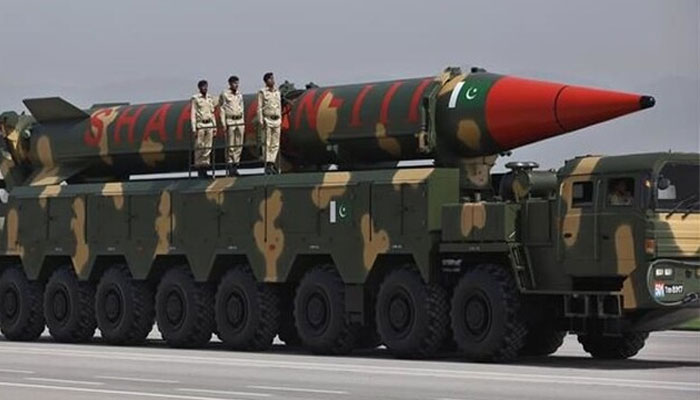“India on target: Pakistan’s new Missile Power Pains India and Worries the United States”
By: Usama Abdul Karim
American officials have raised new concerns about Pakistan’s missile program, saying that recent developments could create new threats for the region and beyond, according to sources in the US Department of Defense.
In a statement on Monday, the Pentagon said Pakistan’s missiles are becoming “more advanced,” especially with longer ranges and better targeting systems. While the US did not say Pakistan is an immediate threat, it warned that if the missile program continues to grow without limits, it could disturb the balance of power in South Asia and even beyond.
“We are carefully watching Pakistan’s missile developments,” said a senior US intelligence official, who asked not to be named. “Pakistan says its missile program is only for defense, but the new technologies could have a much wider reach.”
The Pentagon’s report pointed to Pakistan’s recent testing of hypersonic missiles and satellite-guided systems. It said that some of these missiles could now reach Indian military bases in the Andaman and Nicobar Islands — a major development that could change military strategies in the Indian Ocean region.
If America’s statement about Pakistan’s missile progress is true, it is a serious concern for India, especially because it directly affects its military positions in the Indian Ocean.
Security experts say that if Pakistan can target Indian bases in the Andaman and Nicobar Islands, it would have a big impact on India’s military strategy. These islands are very important for India to control sea routes and monitor the Indian Ocean. A new missile threat could force India to strengthen its missile defenses, change its military planning, and deepen alliances with countries like the United States, Japan, and Australia. However, experts also point out that India’s strong air defense systems and second-strike ability would prevent either side from using such missiles easily. The situation raises tensions but does not mean an immediate conflict.
Experts say this is a big step. “The ability to target bases in the Andaman and Nicobar Islands shows Pakistan’s missile program has grown stronger,” said Dr. Robert Matthews, a security expert at Georgetown University. However, he also said that Pakistan does not yet pose a direct missile threat to the United States.
Pakistan’s government has said many times that its missile program is for defensive purposes only and that it follows international rules. Responding to earlier concerns, Pakistan’s Ministry of Foreign Affairs said the country maintains a “minimum credible deterrence” — meaning just enough force to prevent attacks.
“We strongly reject any claims that Pakistan’s strategic programs are meant for aggression,” the Foreign Office said last month.
The US has also raised concerns about missile programs in North Korea and Iran. Its latest Defense Strategy says it will work more closely with allies to strengthen missile defenses.
Experts in Islamabad believe the US concerns are not just about security, but also linked to growing US-India ties.
“It’s not surprising that Pakistan’s missile program is under more pressure now,” said former ambassador Maleeha Lodhi. “In today’s world, discussions about missile threats are often political.”
So far, the US government has not announced any new sanctions or changes in policy towards Pakistan. However, diplomats say the topic will likely come up in upcoming US-Pakistan talks.




Comments are closed, but trackbacks and pingbacks are open.